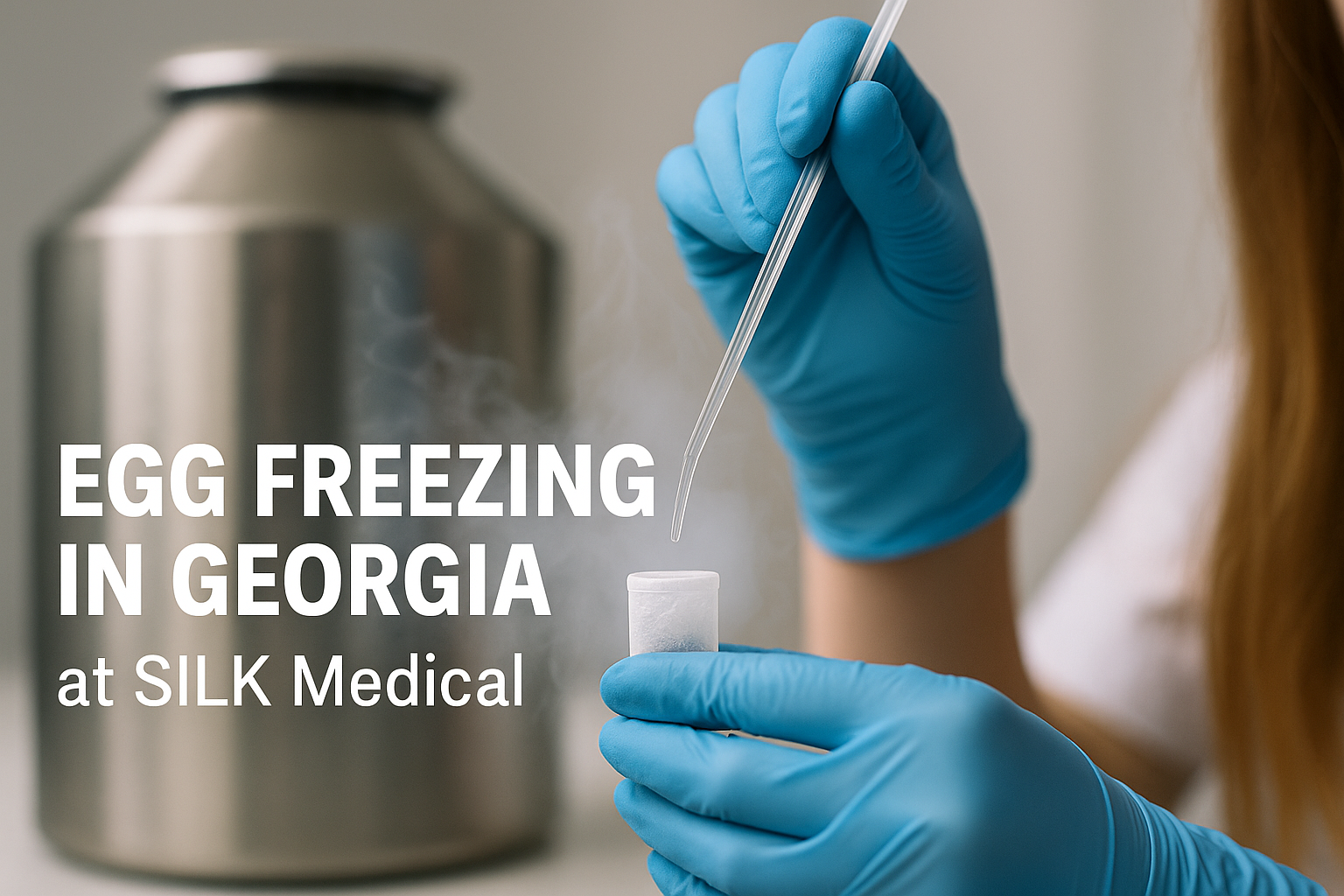Fertility is not static. For women who want to preserve the possibility of having biological children later in life, egg freezing offers a reliable and medically proven solution. The technique – known clinically as oocyte cryopreservation – allows mature eggs to be collected, frozen, and stored for future use, maintaining their quality for years or even decades.
At SILK Medical in Tbilisi, Georgia, egg freezing is available to both local and international patients. Whether you’re postponing childbearing for personal or medical reasons, the clinic provides an efficient and medically safe way to preserve fertility at a fraction of the cost compared to the U.S. or Western Europe.
Who Should Consider Egg Freezing?
There is no single reason to freeze eggs. For some, it’s a proactive decision to delay parenthood while pursuing education, career goals, or until the right partner comes along. For others, the motivation is medical. Women undergoing chemotherapy or surgery that may impact ovarian function, for example, often choose egg freezing as a form of reproductive insurance. Age-related fertility decline is also a key factor. As ovarian reserve decreases with age, preserving eggs while fertility is still strong can improve the chances of a successful pregnancy later on.
SILK Medical’s specialists help patients assess the best time for freezing based on hormonal levels like AMH and ultrasound findings.
The Process at SILK Medical
The procedure takes about two weeks from start to finish. It begins with hormonal stimulation to encourage the ovaries to produce multiple mature eggs. These are then retrieved under intravenous anesthesia and immediately frozen using a technique called vitrification. This ultra-rapid method helps prevent ice crystal formation, preserving the eggs’ cellular integrity. The frozen eggs are safely stored in SILK Medical’s on-site cryobank until the patient is ready to use them.
International patients often begin monitoring at home and travel to Tbilisi for the final stages. A short stay – around 12 to 14 days – is typically enough to complete the process.
Why Age at Freezing Matters
The success of future pregnancies using frozen eggs depends more on the woman’s age at the time of freezing than the length of storage. That’s why many specialists recommend considering egg freezing before age 35, although it can still be effective later depending on individual ovarian reserve and health status.
Safety, Technology, and Laboratory Standards
SILK Medical employs a state-of-the-art embryology lab equipped with the latest vitrification systems. Each sample is carefully tracked using the IVFID Witness system – an RFID-based safeguard that minimizes the risk of any mix-up during handling. The clinic’s lab is also equipped with an AI-powered EmbryoScope used in IVF programs, and the same level of precision is applied to egg freezing procedures.
Every egg retrieved is handled with extreme care by embryologists trained to meet international cryobiology protocols.
A Practical Option for International Patients
Patients from the U.S., Europe, and Asia come to SILK Medical not just for its clinical results, but also for its logistical advantages. Georgia’s legal framework is supportive of egg freezing and assisted reproduction. There are no hidden restrictions on storage or future use, and patients retain full control over their frozen material.
In addition, the clinic’s international team provides multilingual support, helping patients with travel, documentation, and accommodation during their stay.
Start with a Free Consultation
SILK Medical offers individualized consultations to assess whether egg freezing is a good fit for your goals and reproductive health. During your consultation, the clinic’s fertility specialists will review your medical history, explain the necessary lab tests, and outline a personalized plan – including medical, logistical, and legal details tailored to your situation.
To learn more about egg freezing and begin your planning, schedule a free consultation with one of SILK Medical’s experts.


